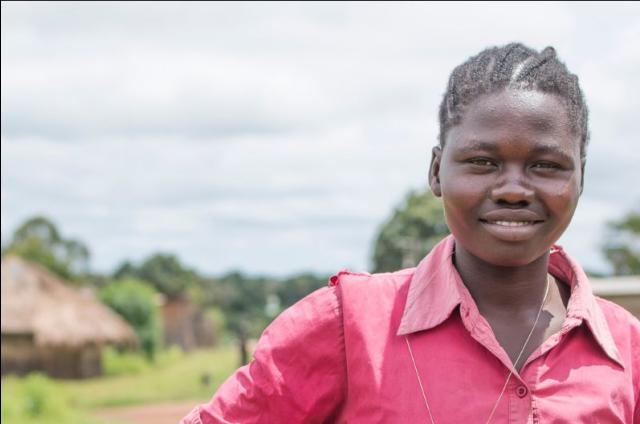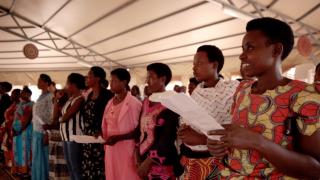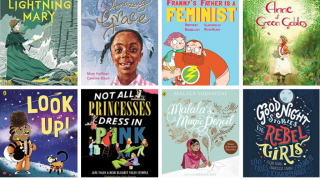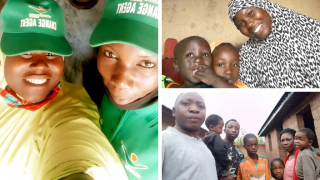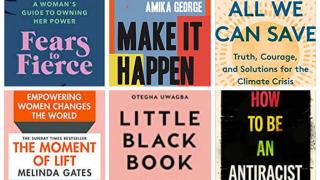From Conflict to Collaboration: A Couple's Transformation
From Conflict to Collaboration: A Couple's Transformation
The journey of two graduates of our programme, Mawa and Jackline, finding peace through our programme
Mawa and Jackline have been married for six years. They live in Wuluturu, Yei River County, South Sudan, with their two children. Their marriage was on the brink of collapse when they were enrolled in our Couples Connect Pilot Programme.
Today, Mawa shares that they now live together in harmony. Here is his story.
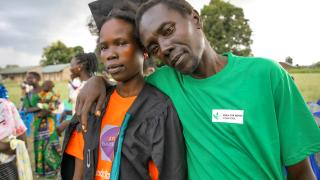
In my culture, being a man means being the head of the family. This title comes with responsibilities but also a lot of privileges.
As the head of my household, I was raised to be the sole provider and decision-maker. Everything I said or did was final. My wife wasn’t supposed to seek financial independence or earn a living; she was meant to stay home and take care of the family.
This belief shaped my expectations when I got married.
To my surprise and frustration, my wife was not the obedient woman I expected. She had a mind of her own and wanted to contribute financially. She would buy things for our home without my input, prepare meals with money I hadn’t given her, and even engage in small businesses and casual labour to make her own money. This independence didn't sit well with me. I was suspicious - where did she get the money? Why was she always away from home? Was she trying to compete with me or, worse, undermine my authority?
My suspicions turned to anger. I verbally insulted her and sometimes became violent. I threw away food she prepared with her own money and restricted her movements.
Our home became a battleground, and we became enemies living under the same roof.
One morning, my wife suggested we join the Couples Connect Programme with Women for Women International.
Initially, I was hesitant. But she mentioned that we might receive financial support if we attended together. Reluctantly, I agreed, motivated only by the prospect of money.
As we participated in the programme, something remarkable happened. We learned about teamwork, sharing responsibilities, effective communication, problem-solving and financial management.
Slowly, I began to understand and appreciate my wife’s efforts.
We started talking again, discussing business, farming and our children. I began supporting her business and we started working together. By the end of the programme, we received some capital, which we invested in her business.
Today, our lives are transformed. I can relax a little, knowing that I don’t have to shoulder every burden alone.
We are a team.
Recently, I developed an illness that affects my ability to walk or stand, making it difficult for me to work. My wife has become the primary breadwinner, contributing up to 70% of our family’s income. I now support her as best I can.
I am grateful to Women for Women International for this life-changing programme and for giving me another chance at love.
I am also grateful to my wife for being strong and persistent.
Without her, I don’t know how I would manage in my current condition.
To all women, I encourage you to support your husbands and not give up on your families. And to the men, I hope you learn from my experience: support your wives, and if you can’t support them, at least don’t stand in their way.
keep reading
In remembrance of the International Day of Reflection on the 1994 Genocide Against the Tutsi in Rwanda. We reflect on how women have rebuilt their lives with the help and support of each other, finding friendships and community. In the aftermath of conflict, they have found hope.
International Children's Book Day
subtitle:
Celebrate International Children’s Book Day with the gift of a book. We know that the books that we read in childhood, stay with us for life. Check out our children’s feminist reading list and celebrate girl power!
If you asked someone to name a famous woman from modern history, who do you think they would say? Here at Women for Women International, we want to celebrate the lesser known women who used their #PowerToChange history. Learn about the incredible impact of women you might not have heard of with our Women’s History Month blog.
Women's History Month Reading Bingo!
subtitle:
Play our bingo of must read books by female authors! How many of these books have you read? How many will you add to your list this Women's History Month? Feed your mind and get inspired by authors whose powerful words and stories will inspire you to use your #PowerToChange.
"My hope is to have 100 women leaders"
subtitle:
We spoke with Aganze Eliud Murhabazi, from our team in the Democratic Republic of Congo, about the impact he sees every day.
Grace and Hadiza are two brave women who are challenging norms and making their voices heard as they advocate for change in their communities in northern Nigeria. Using radio, they are helping women to speak up against gender-based violence and empowering them to get the medical and legal support . Graduates from the Stronger Women, Stronger Nations Programme, these two women are an example of what can be achieved when women believe in the #PowerToChange accepted norms.
Celebrate the power of women this March
subtitle:
If you’re looking for a gift for your mum this Mother’s Day, wanting to celebrate the powerful women in your life for International Women’s Day, or simply feel in need of a well-deserved treat for yourself during lockdown, why not shop with companies that are powering meaningful change for women survivors of war? Mark women’s history month by using your #PowerToChange when shopping -because when we use our power together, we can change the world!
Virtual Book Club: Rage Becomes Her
subtitle:
As part of our campaign #PowerToChange, we held a Virtual Book Club on World Book Day with Soraya Chemaly discussing her book 'Rage Becomes Her'. Watch the recording of the discussion to learn about the power of using anger as a force for positive transformation.
Anna Rust discusses the domino effect of feminism and how supporting women away from home can impact women everywhere.
Time for a transformation
subtitle:
At a time when progress on women’s rights is coming under increasing threat, our new brand will allow us to reach and connect with more people like you, so we can ultimately serve more women survivors of war.
Among the many threats and injustices women endure in war and conflict, human trafficking is one of the most devastating.
This inspiration-filled reading list will help you tap into your inner strength and transform the world around you.

